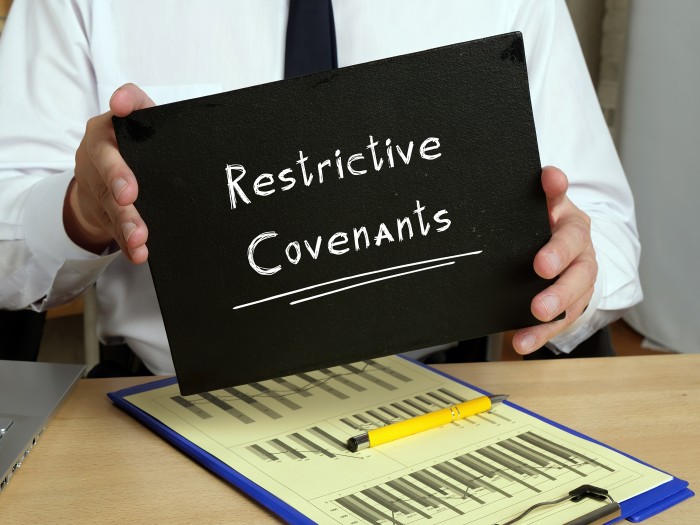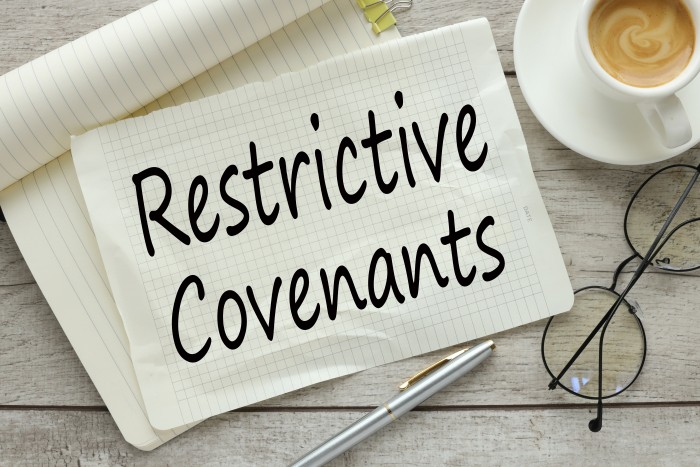
Restrictive Covenants Employment Contract
Introduction to Restrictive Covenants in Employment Contracts
If you’re an employer, you’ll undoubtedly appreciate the value of protecting your business assets. One of the most efficient tools at your disposal is the restrictive covenants employment contract. Its significance is a means of safeguarding your company’s most sensitive assets.
So, what are restrictive covenants and why should they matter to you as an employer? Let’s look at these vital aspects of employment contracts.
Defining Restrictive Covenants Employment Contract
Restrictive covenants are clauses in employment contracts that limit an employee’s actions during and after their employment. Their primary goal is to protect the company’s interests, particularly its proprietary and confidential information.
Importance for Employers
These covenants play a pivotal role for numerous reasons:
- They deter employees from revealing sensitive company information.
- They can prevent the loss of clients or customers to competitors.
- They maintain the company’s competitive edge in the market.
- They establish clear boundaries and expectations for employees.
- They can bolster the company’s negotiating position in any disputes.
The Safeguarding Role of Restrictive Covenants
It’s not just about having these clauses in place; it’s about having them tailored to your business needs. Every business has its unique set of information, processes and relationships it wants to protect. A well-drafted restrictive covenants employment contract can help ensure these remain secure, giving you peace of mind and the freedom to focus on growth.
Moreover, it’s not just the tangible benefits. Having restrictive covenants in employment instils a sense of trust within your team, ensuring everyone understands their boundaries. It’s this clarity that often proves crucial in avoiding potential disputes down the line.
In essence, the restrictive covenants employment contract is more than a legal formality. It’s a shield for your business, ensuring you remain competitive and focused. Every employer should consider its potency and utility.
Types of Restrictive Covenants and Their Implications
Grasping the diverse restrictive covenants within an employment contract is crucial. The landscape of restrictive covenants in employment contracts is vast, with each type catering to specific concerns and scenarios. These clauses play a paramount role in ensuring your business’s safety and competitive edge. To appreciate their full potential, it’s essential to understand their different types and the implications each brings to the table.
Non-compete Clauses
Perhaps one of the most commonly known, non-compete clauses prevent ex-employees from working with direct competitors for a specified period and within a certain geographical area. The essence here is to keep your business strategies, innovations and other proprietary information away from rival businesses. These clauses protect your company by ensuring that employees, especially those privy to sensitive information, don’t use this knowledge to the advantage of your competitors.
Non-solicitation Clauses
Staff turnover is a reality every business faces. However, losing your valuable clients or employees in the aftermath doesn’t have to be. Non-solicitation clauses restrict ex-employees from poaching your clients, customers, or even colleagues for a predetermined period. By incorporating this into your restrictive covenants employment contract, you guard your company against potential client or talent drainage, ensuring stability and continuity.
Confidentiality Clauses
Every business thrives on its unique strategies, processes, and data. Confidentiality clauses are pivotal in ensuring that these sensitive pieces of information remain within the company’s walls. They prohibit employees from disclosing or using the company’s confidential information for their gain or the benefit of others. In today’s age of information, where data is the new gold, these clauses are non-negotiable for a company aiming for longevity.
Non-dealing Clauses
Relationships with clients and customers form the backbone of any successful business. Non-dealing clauses ensure that, post-employment, former employees cannot do business with clients they had contact with during their tenure, regardless of who initiates contact. This ensures your hard-earned relationships remain intact, and your business continues to prosper without undue interference.
To wrap it up, a well-crafted restrictive covenants employment contract is not just about limiting an employee’s actions post-employment. It’s about striking a balance between protecting your business and being fair to the employee. By understanding the nuances of each covenant type, you ensure that your company remains both protected and positioned for continued success.
Drafting an Enforceable Restrictive Covenant Employment Contract
Creating an airtight restrictive covenants employment contract is extremely important. For a covenant to stand its ground in legal contests, it must be reasonable, clear, and justifiable. As an employer, you must strike the right balance between your company’s protection and an employee’s freedom to work post-employment.
Importance of Reasonableness and Clarity
A restrictive covenant that’s seen as overly punitive or broad is more likely to be struck down by a court. It’s paramount to ensure that the covenants you draft are clear in their terms and reasonable in their restrictions. This not only fortifies its enforceability but also fosters goodwill with employees who recognize fair terms.
Geographical and Time Limitations
Both geography and time are integral when considering the enforceability of a covenant. They should be proportionate to the interest you’re aiming to protect.
- For instance, restricting an ex-salesperson from working in the same city for a year might be reasonable. However, extending that restriction nationwide might not stand in court.
- Similarly, while a six-month non-compete clause may be enforceable, stretching it to three years without justification could be seen as excessive.
Regularly Reviewing and Updating Clauses
Business needs and the legal landscape evolve. Consequently, it’s imperative that your restrictive covenants employment contract evolves too. By routinely reviewing and revising your covenants, you ensure they remain in tune with current business needs and legal standards.
- Consider technological advancements that might necessitate changes in your confidentiality clauses.
- Shifts in your business model might call for updates in non-compete terms.
Incorporating adaptability into your approach to restrictive covenants not only bolsters their strength but also demonstrates your commitment to fair practice. Employees are more likely to respect and abide by terms they perceive as just and updated. Thus, a meticulously crafted and frequently updated restrictive covenants employment contract is not merely a protective shield; it’s an indiction of a company’s dedication to both its future and the fair treatment of its workforce.
Potential Pitfalls and Legal Challenges
While the restrictive covenants employment contract serves as an essential tool for employers, it’s not without its complexities. It is important to understand the potential pitfalls and the challenges these covenants can face in the legal arena. A well-intentioned covenant can sometimes be seen as unfair or overly restrictive, opening the door to legal disputes.
When Restrictive Covenants Become Too Restrictive
A common mistake many employers make is drafting covenants that cast too wide a net. The aim should always be to protect legitimate business interests, not to stifle an employee’s ability to seek employment post-termination. If a court deems a covenant too harsh or extensive, it may render it unenforceable, leaving your business unprotected. This underscores the importance of specificity, clarity, and reasonableness in drafting.
Recent Legal Cases and Their Implications
Understanding recent legal decisions regarding restrictive covenants can offer invaluable insights for employers. Courts continuously assess and interpret these clauses, setting precedents that can influence future rulings. For example, cases where covenants were deemed unenforceable due to vagueness can guide employers on the importance of clarity. Meanwhile, cases upholding the enforceability of certain covenants can shed light on what courts consider reasonable. Staying abreast of these developments ensures that your restrictive covenants employment contract remains both current and robust.
The Costs and Potential Reputational Risks
Engaging in legal battles over covenant enforceability isn’t just about potential monetary losses. There’s also a significant reputational risk to consider. Disputes can spotlight a company’s employment practices, potentially painting them in a negative light. This can deter future talent and even impact relationships with clients or stakeholders. Therefore, it’s crucial to consider the broader implications and not just the immediate legal outcome.
To sum it up, while restrictive covenants are indispensable for employers, they come with their set of challenges. It’s essential to approach them with a blend of legal prudence and a genuine respect for employee rights.
Strategies for Successful Implementation
Ensuring that your restrictive covenants employment contract serves its intended purpose goes beyond mere drafting. Successful implementation is equally critical, and it requires a strategic approach that encompasses clarity, communication, and consistency. Here’s how you can ensure that your covenants are not just well-written, but also effectively implemented and upheld.
Clear Communication with Employees
For any contract to be effective, understanding is paramount. It’s essential that employees fully grasp the covenants they’re agreeing to. Holding orientation sessions or workshops can elucidate the importance, scope and implications of the restrictive covenants. This not only educates but also fosters a sense of transparency and trust, reducing potential friction down the road.
Incorporating Clauses in Induction Processes
Introducing new employees to restrictive covenants at the induction stage can set clear expectations from the outset. It ensures that employees commence their roles with a thorough understanding of their contractual obligations. A proactive approach at this stage can prevent misunderstandings and potential disputes in the future.
Regular Legal Consultations
With the ever changing area of employment law, it’s beneficial to have regular legal consultations. This helps in ensuring that your restrictive covenants employment contract remains updated and in line with current legal standards. Additionally, legal experts can provide insights into any potential loopholes or areas that might need reinforcement.
Maintaining Consistency in Enforcement
Consistency is key when it comes to enforcement. Inconsistent actions can lead to perceptions of bias or unfairness. To maintain trust and integrity:
- Ensure that breaches are dealt with uniformly, irrespective of the employee’s position or tenure.
- Keep detailed records of any actions taken in response to breaches. This can be invaluable in the event of disputes or legal challenges.
In conclusion, drafting a watertight restrictive covenants employment contract is only half the battle. Ensuring that it’s understood, respected and consistently upheld is what truly determines its efficacy. By embracing strategies that prioritize clarity, communication and consistency, you can fortify your business against potential threats while fostering an environment of trust and mutual respect. In the world of business, it’s not just about protecting your assets; it’s also about cultivating relationships built on understanding and integrity.
Call John Bloor at EBS Law on 01625 87 4400 if you are an employer and need free Employment Law Advice.


